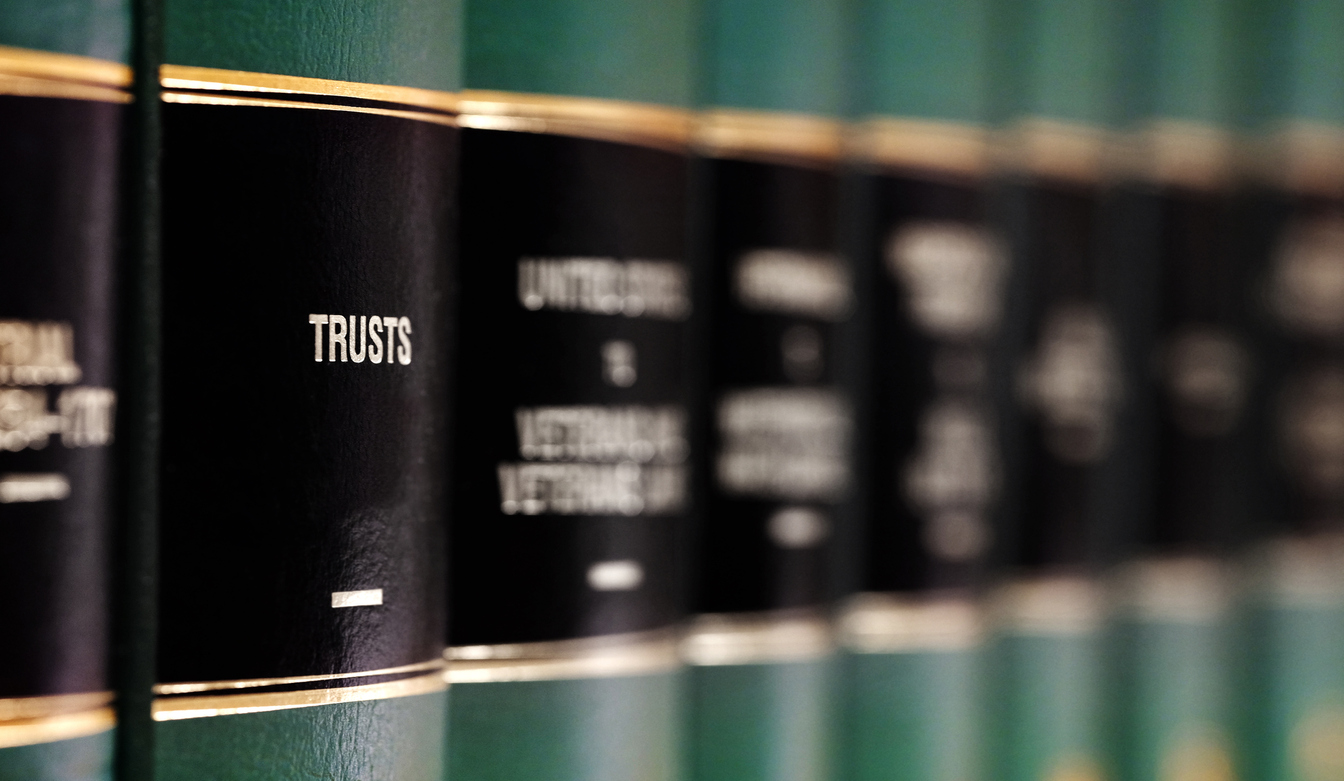Understanding the Importance of Writing Wills, Estates, and Trusts: A Guide by Wigmore Trading
Understanding the Importance of Writing Wills, Estates, and Trusts: A Guide by Wigmore Trading
Are you ready to secure your loved ones’ future? Introducing Wigmore Trading’s ultimate guide on understanding the importance of writing wills, estates, and trusts. In this comprehensive blog post, we delve deep into the world of legal planning and uncover why having a solid estate plan is not just for the wealthy but for everyone who wishes to leave a lasting legacy. Get ready to embark on a journey that will empower you with knowledge, debunk myths, and highlight the crucial role these documents play in protecting your assets and ensuring peace of mind for generations to come. Don’t miss out on this eye-opening read – it might just change your perspective on estate planning forever!
Introduction to Wills, Estates, and Trusts
Introduction to Wills, Estates, and Trusts
Wills, estates, and trusts are important legal tools that everyone should be familiar with. These terms refer to the planning and distribution of one’s assets after their death. While it may not be a pleasant topic to think about, having a clear understanding of these concepts can help ensure that your wishes are carried out and your loved ones are taken care of in the event of your passing.
In this section, we will provide you with a comprehensive overview of wills, estates, and trusts so that you can have a better understanding of how they work and why they are crucial for proper financial planning.
What is a Will?
A will is a legal document that outlines how an individual’s assets will be distributed after their death. It allows you to specify who will inherit your property, money, and other assets. A will also allows you to name an executor who will oversee the distribution process according to your wishes.
Without a valid will in place, your assets may be distributed according to state laws or court decisions. This could result in your assets being divided differently than what you would have wanted or even end up in the hands of someone you did not intend to leave them to.
What is an Estate?
An estate refers to all the assets that an individual owns at the time of their death. This includes real estate properties such as homes and land, personal belongings such as cars and jewelry, bank accounts, investments, business interests,and any other valuable possessions
Why is it important to have a will?
Having a will is an essential part of estate planning and is often considered one of the most important legal documents you can have. It outlines your wishes for how your assets should be distributed after your death, and who should be responsible for carrying out those wishes. While it may not be a pleasant topic to think about, having a will in place can bring peace of mind to both you and your loved ones.
Here are some key reasons why it is crucial to have a will:
1. Ensures Your Wishes Are Honored
The main purpose of a will is to ensure that your final wishes are carried out exactly as you intended. Without a will, the laws of intestacy will determine how your assets are distributed, which may not align with what you would have wanted. This can also lead to disputes among family members and loved ones, causing unnecessary stress during an already difficult time.
2. Protects Your Children
If you have minor children, having a will allows you to name guardians who will take care of them if something were to happen to both parents. This ensures that they are taken care of by someone whom you trust rather than leaving it up to the court’s decision.
3. Minimizes Family Conflicts
When there is no clear guidance on the distribution of assets, it can lead to disagreements and conflicts among family members. Having a detailed will can help prevent such disputes by clearly stating your intentions for each asset and leaving little room for interpretation or misunderstandings.
4. Helps
Understanding the difference between wills, estates, and trusts
Wills, estates, and trusts are legal terms that are often used interchangeably, but they actually refer to three distinct concepts. While all of these involve the distribution of assets after a person’s death, each has its own purpose and function. It is important to understand the differences between them in order to make informed decisions about your estate plan.
Wills:
A will is a legal document that outlines how a person’s assets will be distributed after their death. It allows an individual (referred to as the testator) to specify who will inherit their property, along with any specific instructions or wishes for how it should be divided.
One key aspect of a will is that it only takes effect upon the testator’s death. This means that until then, they have complete control over their assets and can make changes or updates to the will as needed. Additionally, a will can also name guardians for minor children and designate someone to handle financial affairs on behalf of any beneficiaries who are not yet capable of managing their inheritance.
It is important to note that in order for a will to be legally valid, it must go through the probate process. This involves having the court review the document and ensure its validity before distributing assets according to its instructions. This process can be time-consuming and expensive, which is why many people choose alternative methods such as trusts.
Estates:
An estate refers to all of an individual’s assets at the time of their death – including real estate, bank accounts, investments,
The process of writing a will
The process of writing a will can seem daunting, but it is an important step in ensuring that your assets are distributed according to your wishes after you pass away. In this section, we will break down the process of writing a will into easy-to-follow steps.
Step 1: Determine your assets and beneficiaries
The first step in writing a will is to determine what assets you have and who you want to leave them to. This includes items such as real estate, bank accounts, investments, personal belongings, and any other valuable possessions. You should also consider who you want to name as your beneficiaries – these are the people or organizations who will inherit your assets.
Step 2: Choose an executor
An executor is the person responsible for carrying out the instructions in your will after you pass away. It is important to choose someone who is reliable and trustworthy. This could be a family member or close friend, but it’s also recommended to have a backup executor named in case your first choice is unable or unwilling to fulfill their duties.
Step 3: Consult with a legal professional
While it may be tempting to write your own will using online templates or DIY kits, it’s highly recommended to consult with a legal professional experienced in estate planning. They can provide personalized advice and ensure that all necessary legal requirements are met.
Step 4: Drafting the will
Once you have determined your assets, beneficiaries, and chosen an executor, it’s time to draft the actual document. Your lawyer can assist you in this step, but if you choose to do it yourself, there are some important considerations. Make sure your will is clearly written and includes all of your assets and beneficiaries. You should also include instructions for how you want your assets to be distributed, and any specific conditions or requests.
Step 5: Signing the will
For a will to be legally valid, it must be signed by the testator (the person writing the will) and witnessed by at least two people who are not named as beneficiaries in the will. This is to ensure that the document accurately reflects the wishes of the testator and has not been tampered with.
Step 6: Updating your will
It’s important to review and update your will periodically, especially after major life events such as marriage, divorce, birth of a child, or significant changes in assets. It’s recommended to review your will every three to five years or whenever there is a significant change in your life circumstances.
In conclusion, writing a will involves determining your assets and beneficiaries, choosing an executor, drafting the document with legal assistance if needed, signing it with witnesses present, and regularly updating it as needed.
– Choosing an executor
Choosing an executor is a crucial and often overlooked aspect of writing a will, estate, or trust. An executor is the person responsible for carrying out the wishes outlined in your legal documents after you have passed away. They play a vital role in managing your assets and ensuring that they are distributed according to your wishes.
When choosing an executor, it is important to consider several factors to ensure that the individual or institution you select is capable of fulfilling their duties effectively. Here are some key considerations when choosing an executor:
1. Trustworthiness and Reliability:
One of the most critical qualities an executor should possess is trustworthiness and reliability. This person will have access to all your financial information, so it’s essential to choose someone who can handle this responsibility with integrity and discretion.
2. Financial Competency:
Your chosen executor should be financially competent as they will be responsible for managing your assets and distributing them according to your wishes. They should have a good understanding of financial matters such as investments, taxes, and property management.
3. Availability:
It’s important to choose an executor who has the time and availability to carry out their duties effectively. Managing someone’s estate can be a time-consuming process, from handling legal paperwork to communicating with beneficiaries or creditors.
4. Communication Skills:
An effective communicator is crucial when selecting an executor as they will need to communicate clearly with beneficiaries, lawyers, accountants, financial advisors, etc., on behalf of the deceased individual.
– Deciding on beneficiaries
Deciding on beneficiaries is a crucial step in the process of writing a will, estate, or trust. It involves determining who will receive your assets and how they will be distributed after you pass away. This decision can be challenging and emotional, but it is essential to carefully consider all factors to ensure that your wishes are carried out as intended.
One of the first things to consider when deciding on beneficiaries is your family structure. You need to determine who your immediate family members are and whether you want them to be included in your will or trust. Your immediate family typically includes your spouse, children, parents, and siblings. However, you may also have other extended family members whom you wish to leave assets to.
Next, think about any special individuals or organizations that hold significance in your life. These could include close friends, charities, religious institutions or educational institutions that have impacted you in some way. You might want to include them as beneficiaries in your estate plan.
It’s important to keep in mind that beneficiaries can also be designated for specific assets rather than just a lump sum of money or property. For example, if you have a valuable piece of jewelry or artwork that holds sentimental value for someone specific in your life, you can designate them as the beneficiary for that particular asset.
– Determining assets and debts
Determining assets and debts is a crucial step in the process of writing wills, estates, and trusts. This involves thoroughly assessing all your possessions and liabilities to ensure that they are accurately documented and allocated according to your wishes after you pass away.
The first part of determining assets involves creating an inventory of all your physical and financial assets. Physical assets include real estate properties, vehicles, jewelry, artwork, collectibles, and any other tangible items with monetary value. It is important to provide detailed descriptions of these items such as make, model, serial number, and any relevant documents or certifications.
Next, you should also take into account your financial assets such as bank accounts (checking and savings), investments (stocks, bonds), retirement accounts (401k or IRA), life insurance policies, business ownerships or partnerships, intellectual property rights (patents or trademarks), among others. It is essential to gather all necessary documentation for each asset including account numbers and contact information for financial institutions.
In addition to physical and financial assets, it is also important to consider any digital assets you may have. These can include social media accounts, online banking profiles, email accounts with sensitive information or sentimental value attached to them. Make sure to keep a record of login credentials for these accounts so that they can be accessed by your designated executor or trustee.
– Legal aspects to consider
When it comes to planning for the future, writing wills, estates, and trusts is a crucial step. While many people may think of these legal documents as something only for the wealthy or elderly, the truth is that anyone with assets and loved ones should have them in place.
In this section, we will discuss the various legal aspects to consider when it comes to writing wills, estates, and trusts. These documents are legally binding and can have a significant impact on your loved ones after your passing. It is essential to understand their importance and ensure that they are drafted correctly.
1. State Laws: The first thing to keep in mind when writing wills, estates, and trusts is that each state has its own laws governing these documents. This means that what may be valid in one state may not hold up in another. It is crucial to consult with an attorney familiar with the laws of your state to ensure that your documents are legally enforceable.
2. Validity: For a document to be considered valid, there are certain requirements that must be met. For example, wills typically need to be signed by two witnesses who do not stand to inherit anything from the testator (the person writing the will). Failure to meet these requirements could result in the document being deemed invalid.
3. Choosing Executors/Trustees: An executor or trustee is responsible for carrying out the wishes outlined in your will or trust after you pass away. It is crucial to choose someone who is trustworthy and capable of handling these responsibilities. You may also want to consider naming an alternate in case your first choice is unable or unwilling to fulfill the role.
4. Beneficiaries: When writing wills, estates, and trusts, you must clearly outline who will inherit your assets. In some cases, this may be straightforward, but in others, it can be more complicated. For example, if you have children from a previous marriage or want to leave something to a charity or organization, you will need to specify this in your documents.
5. Taxes: The transfer of assets through wills, estates, and trusts can have tax implications for both the estate and beneficiaries. It is essential to understand how taxes may impact your loved ones after your passing and discuss options with an attorney or financial advisor.
6. Updating Documents: Life is constantly changing, and so should your legal documents. It is crucial to review and update your wills, estates, and trusts regularly to ensure they reflect your current wishes. Changes in family dynamics or significant life events such as marriage or divorce may require updates to these documents.
Estate planning and management with Wigmore Trading
Estate planning and management can often be a daunting and overwhelming process, but with the help of Wigmore Trading, it doesn’t have to be. As specialists in wills, estates, and trusts, we understand the importance of proper planning and management for your assets and loved ones.
At Wigmore Trading, our team of experienced professionals are dedicated to helping individuals and families create comprehensive estate plans that protect their assets and ensure their wishes are carried out. We understand that every person’s situation is unique, which is why we offer personalized services tailored to meet your specific needs.
The first step in estate planning is creating a will. A will is a legal document that outlines how you want your assets to be distributed after you pass away. It also allows you to name guardians for any minor children and specify any final wishes or instructions for your funeral arrangements. Without a properly drafted will, your estate may be subject to intestate succession laws where the state determines how your assets are distributed – which may not align with your wishes.
Wigmore Trading can guide you through the entire process of creating a will that reflects your desires while also ensuring it meets all legal requirements. We work closely with our clients to review their assets, discuss potential tax implications, consider family dynamics, and address any other concerns they may have when drafting their will.
– Services offered by Wigmore Trading
Wigmore Trading is a leading provider of professional legal services, specializing in wills, estates, and trusts. Our team of experienced lawyers understands the complexities involved in planning for the future and aims to make this process as seamless and stress-free as possible for our clients.
In this section, we will delve into the specific services offered by Wigmore Trading that can help you secure your assets and protect your loved ones’ financial future.
1. Wills:
A will is a crucial document that outlines how a person’s assets should be distributed after their passing. At Wigmore Trading, we understand the importance of having a legally binding will to ensure that your final wishes are carried out precisely as you intended. Our team can assist you in drafting a comprehensive will that covers all your assets, including property, investments, business interests, and personal belongings. We also provide guidance on appointing executors and guardians for minor children or dependents.
2. Estate Planning:
Estate planning involves making arrangements for the management and distribution of an individual’s assets during their lifetime or after their death. It includes minimizing tax liabilities and ensuring that beneficiaries receive their rightful share without any complications. Our estate planning services at Wigmore Trading encompass various aspects such as creating living trusts, establishing charitable giving plans, setting up life insurance policies to cover estate taxes, and more.
3. Trusts:
Trusts are legal entities created to hold assets for the benefit of designated beneficiaries. They offer numerous benefits such as avoiding probate court proceedings , reducing estate taxes, and protecting assets from creditors. Our team can assist you in setting up various types of trusts, including revocable living trusts, irrevocable trusts, special needs trusts, and more.
4. Estate Administration:
After the passing of a loved one, their estate must go through a legal process called probate to transfer ownership of assets to beneficiaries. Our team at Wigmore Trading can guide you through this complex process and handle all the necessary paperwork and court proceedings on your behalf.
5. Probate Litigation:
In some cases, disputes may arise during the probate process regarding the validity of a will or distribution of assets. Our lawyers at Wigmore Trading have extensive experience in probate litigation and can provide effective representation to resolve any disputes efficiently.
6. Power of Attorney:
A power of attorney is a legal document that grants another person the authority to act on your behalf in financial or medical matters if you become incapacitated or unable to make decisions for yourself. Our team can help you draft powers of attorney that align with your specific wishes and needs.
– Benefits of using a professional service
There are numerous benefits to using a professional service for writing wills, estates, and trusts. While it may seem like a daunting task to seek professional help and pay the associated fees, the advantages far outweigh any initial costs.
1. Expertise and Knowledge:
Professional services have specialized knowledge and expertise in drafting legal documents such as wills, estates, and trusts. They understand the complexities of estate planning laws and can ensure that your documents are drafted accurately and effectively. This can give you peace of mind knowing that your wishes will be properly documented and executed.
2. Customized Solutions:
Each individual’s situation is unique, which is why having a professional service assist with your estate planning is crucial. They can tailor their services to meet your specific needs and create customized solutions that address your concerns while also minimizing any potential tax implications.
3. Avoiding Mistakes:
Writing wills, estates, and trusts involves complex legal language and technicalities that require careful attention to detail. Without proper knowledge or experience in this area, there is a high risk of making mistakes or leaving out important details. Professional services have trained professionals who specialize in this field; they know what to look for and how to avoid costly errors.







Comments are closed.